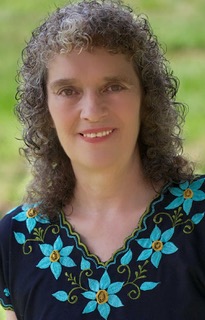Am I a Samaritan?
Susan K. Stewart is a practical, biblical woman. She takes a no-nonsense approach to life, but with a tender heart. In this Compassion UPGRADE, she asks a thought-provoking question: Am I a Samaritan?
“My goal that Sunday morning was to slip into the last row of chairs after the service started, then leave quietly during the closing hymn,” Susan says.
“But God has a way of thwarting our plans for His.”
My heart (Dawn’s) was so touched by Susan’s story; and the lesson she drew from this tough life experience is life-impacting.
Susan continues . . .
The week before an anonymous reporter told the sheriff’s department our seventeen-year-old son had been beaten by his father.
On Sunday, our son was still at a Child Protective Services shelter. We would not know when he could come home until a hearing still ten days away.
To compound the pain of this situation, my husband had been arrested for those allegations.
The small-town weekly newspaper reported all arrests. So, there it was for all the public to see.
When child abuse is reported, not only do the officials treat the accused parent as guilty, so do others. Although I was able to make the required bail, it was still agony to go in public.
Even knowing the falsehood involved, there was no bandage to cover people’s reactions.
A Hurting Heart on Mother’s Day
We tried to quickly sit down while the worship team slowly gathered on the stage and congregants took their seats.
Those who didn’t know us well made sideways glances at us and left the chairs next to us empty. Those who knew us only gave distant greetings. Maybe they believed the report; maybe they didn’t know what to say.
I felt even more alone.
Then Nora walked across the auditorium to give me a hug.
While that may not seem significant most Sunday mornings, on this particular Sunday it was a balm I needed. Not only due to the situation we found ourselves in, but it was also Mother’s Day.
It would have been easy to have stayed at home. After all, we all know what Mother’s Day at church is like.
Moms proudly standing with adoring children, various moms receiving special recognition—the mom whose child is in protective custody or in jail isn’t invited to stand—and the Proverbs 31 sermon.
But the Holy Spirit shoved me out our front door. He knew there was a living sermon for me.
An Unlikely Samaritan
This lady who went out of her way to share love with me was not a close friend. Nora and I had differences. Honestly, she wasn’t someone I expected to approach me. If I had given it any thought, I would have expected her to be one of those who might stand nearby and whisper.
In spite of our sometimes less than cordial relationship, Nora recognized my breaking heart, sought me out to show Christ’s healing love, and became a Samaritan to me. It would have been easier for her to pass by on the other side of the road.
Instead, she publicly acknowledged I needed healing.
Am I a Good Samaritan?
Even though the charges were ultimately dropped by the court, we continued to face some dark hours. During the time in the valley, I was focused on our family’s pain.
As the Shepherd brought us through, I began to look outward more.
- Was I passing on the other side of road when someone was hurt?
- How did I react to negative reports about others?
- Had I become like the priest or the Levite who moved away from the injured?
I’ve not always followed Nora’s or Christ’s example.
I’m too quick to be concerned about appearances or believing the “news” about someone’s struggle.
Had it been another mother that morning going through inner pain, I may have been one of those whispering and sitting in a different row.
Also like the Samaritan, Nora moved on with her life.
She and I didn’t become friends. In fact, after that one hug, she only asked a couple times how things were going. She’s not the one I asked to be at the court hearing with us. Our lives didn’t converge beyond the soccer field. She’s not even a Facebook “friend” now.
It isn’t necessary to be BFFs to share a healing hug or note of love.
Jesus’s parable (Luke 10:25-37) uses a Samaritan and Jew; people who hated each other. These men wouldn’t not have talked to each other under different circumstances.
The Samaritan followed what was right, not what was expected. He was “the one who had mercy” (Luke 10:37).
I don’t imagine they had coffee together after the incident. Showing God’s love is for everyone, not just the people we like.
Nora is forever my Samaritan, who crossed the road to offer healing and comfort. She is the Samaritan who made sure my heart was cared for that morning.
She continues to be an example I now try to follow.
Who has been your Samaritan? Are you a Samaritan? How can you strive to be a Samaritan to the unloved?
 Susan K. Stewart, Managing Editor with Elk Lake Publishing, teaches, writes, and edits non-fiction. When she’s not tending chickens and donkeys, Susan
Susan K. Stewart, Managing Editor with Elk Lake Publishing, teaches, writes, and edits non-fiction. When she’s not tending chickens and donkeys, Susan  teaches, writes, and edits non-fiction. Susan’s passion is to inspire readers with practical, real-world solutions. Her latest book, Donkey Devos: Listening When God Speaks, is a devotional based on life with her donkeys. You can learn more at her website www.susankstewart.com.
teaches, writes, and edits non-fiction. Susan’s passion is to inspire readers with practical, real-world solutions. Her latest book, Donkey Devos: Listening When God Speaks, is a devotional based on life with her donkeys. You can learn more at her website www.susankstewart.com.
Graphic adapted, courtesy of Natalia Navrilenko at Pixabay.
 Post a Comment → Posted on
Post a Comment → Posted on  Thursday, May 25, 2023 at 11:00AM
Thursday, May 25, 2023 at 11:00AM  Good Samaritan,
Good Samaritan,  Hurting Heart,
Hurting Heart,  Samaritan,
Samaritan,  Showing Love,
Showing Love,  Susan K. Stewart,
Susan K. Stewart,  Unlikely Samaritan,
Unlikely Samaritan,  Upgrade with Dawn Upgrade Your Life
Upgrade with Dawn Upgrade Your Life  Compassion,
Compassion,  Spiritual Maturity
Spiritual Maturity 















